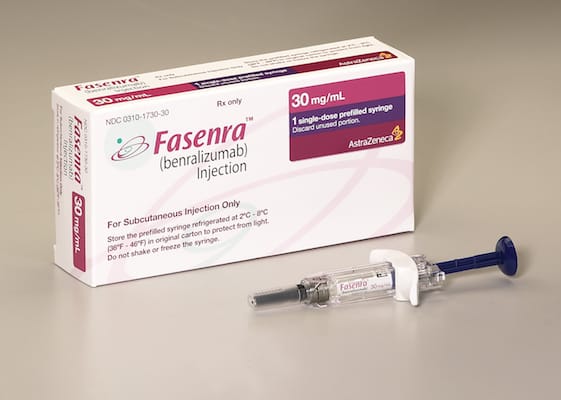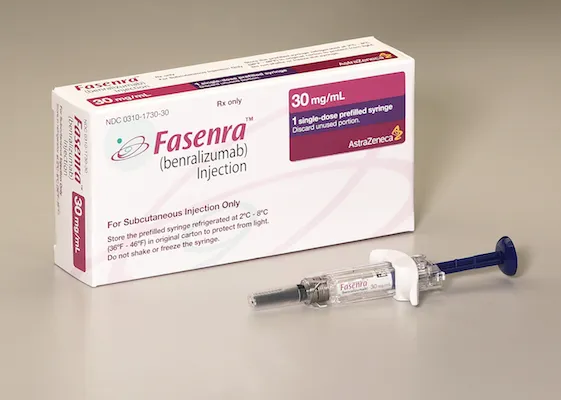WILMINGTON, Del. — AstraZeneca plans to release Fasenra, its newly approved biologic drug for severe asthma, to U.S. pharmacies in the coming weeks.
Fasenra (benralizumab), approved this week by the Food and Drug Administration, is indicated for the add-on maintenance treatment of patients ages 12 and older with severe asthma and an eosinophilic phenotype.

AstraZeneca said the drug is the only respiratory biologic that provides direct, rapid and near-complete depletion of eosinophils within 24 hours.
Eosinophils are a type of white blood cell that are a normal part of the body’s immune system. Elevated levels of eosinophils, seen in about half of severe asthma patients, impact airway inflammation and airway hyper-responsiveness, resulting in higher asthma severity and symptoms, decreased lung function and increased risk of exacerbations, according to AstraZeneca.
“We’re excited to offer Fasenra as a new precision biologic to help improve the lives of severe asthma patients whose disease is driven by eosinophilic inflammation,” stated Pascal Soriot, chief executive officer of AstraZeneca. “This is the first approval from our respiratory biologics portfolio and the latest in a series of significant milestones for our company as we deliver on our pipeline-driven transformation.”
Developed with MedImmune, AstraZeneca’s global biologics R&D arm, Fasenra comes as a subcutaneous injection via a prefilled syringe administered once every four weeks for the first three doses, and then once every eight weeks thereafter.
“This is an important day for severe, eosinophilic asthma patients who have had limited treatment options for far too long, with many relying on oral steroids to manage their symptoms,” noted Eugene Bleecker, professor and co-director of genetics, genomics and precision medicine at the University of Arizona Health Sciences. “Fasenra has a strong clinical profile, which includes the ability to show lung function improvement after the first dose, the potential to reduce or even stop oral steroid use, and the convenience of eight-week dosing. Fasenra also treats a distinct patient phenotype, helping physicians select the right patient in clinical practice with more confidence.”







